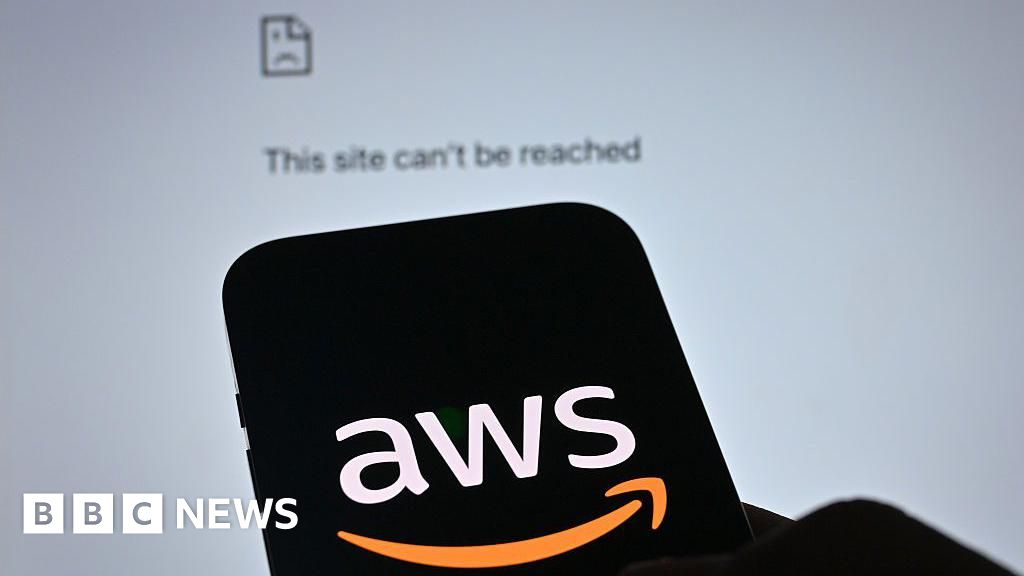Amazon scam warning as horrified customer tricked out of £11,000 by super-sophisticated con
An Amazon customer lost £11,000 in a worrying scam tactic, which saw fraudsters hack his account, then dupe him into believing they preventing further money being taken.Sam, from Kenilworth, received an unexpected phone call from scammers purporting to be from Amazon last year, informing him his account was currently being hacked.He was told the imposter was buying “a lot” of iPhones on his account, using the card connected to his Amazon account.He recalled the caller claiming “they needed to protect everything” because it was all “in process” and happening at that moment.Understandably concerned, Sam logged into Amazon and saw the items were indeed there in his cart.Speaking on BBC Radio 5Live, he said: “They were constantly moving around as if they were being sold at the time.” Now aware of the scam, Sam explained he believed the fraudsters had hacked into Amazon, then called him to warn Sam of this fact – and to eventually steal more money.He said: “Straight away, what they were telling me was the truth, because obviously it was them that had hacked me and were pretending to be the ones that were going to save me.”Conscious it could be a scam, Sam said it was then he asked how the caller could prove they were legitimately from Amazon.He said the caller also discussed security, claiming they would first need to prove they were speaking to the account holder.Sam recalled: “They sent me the OTP [one-time passcode] and I read it off, or they read it off to me. From that point I was with them, I thought this was legit.”The caller informed him the hackers had already managed to buy 11 iPhones on the account, understandably putting Sam into a “panic”.He said: “All my money, in my head, was vanishing from my NatWest or whatever card I had connected. At this point, I was very stressed.”Sam was told they needed to disconnect all the cards linked to the Amazon account. “It seemed like a good idea, so I did that.”He was then told his IP address “has been consolidated”. The caller said: “They can see everything. They’re probably watching your screens right now. They’ve got your NatWest information now. “Then they played me on that,” he remembered, explaining the caller said they needed to put all of the money in the supposedly compromised NatWest account into another bank account that was “still secure”.Sam intended to move his money into his Monzo account, but in his panic, they managed to “play him completely”.He said: “They managed to get me to move all of my money from one account into what I thought was going to be my Monzo but one of the digits was wrong or my numbers looked mostly right…" Sam was actually sending money not to himself but, through the platform Wise, he was unknowingly sending it to the scammers.Sam sadly lost around £11,000, and because the scammers convinced him to make an authorised push payment, he hasn’t been able to get his money back.LATEST DEVELOPMENTS:460,000 people to get 10 per cent pay rise from today‘Cash doesn’t crash!’ Barclays online banking outage sparks warningHMRC warns of ‘alarm bells’ as 58,000 people hit with fake tax rebateLouise Baxter, Head of the National Trading Standards Scams Team, explained despite Sam having authorised the payment, there may be a way for him to get his money back from the bank.She suggested he could submit a claim for the Contingent Reimbursement Model (CRM) code, if his bank had signed up to this voluntary code.Ms Baxter explained: “What you can do with your financial organisations or any of your retail banks is, if they say, ‘No, you can’t have your money back, it’s your fault’, you can put in a complaint, and then push it to the Financial Ombudsman Service.”Jim Browning, a software engineer behind the "Scambaiter" YouTube account, explained a way in which scammers access people's Amazon accounts - although Sam believes they had already hacked his account before he said the OTP.He said: "The very first item they do is they say to people, 'We're Amazon, there's suspicious activity on your account. I'm going to send you a code. "Because normally, and your case may be different Sam, but normally what they do is the first thing they do is get people to read out the code to them. "Then they go into the account, then they'll add a load of iPhones into your account, and say, 'Have a look at whatever's in your outbox or shopping basket'. Suddenly you'll see 11 iPhones because they're putting them in there."Mr Browning has urged people never to read out one-time passcodes (OTP).An Amazon spokesperson said: “Scammers that attempt to impersonate Amazon put consumers at risk.“We will continue to invest in protecting consumers and educating the public on scam avoidance. “And we encourage consumers to report suspected scams to us so that we can protect their accounts and refer bad actors to law enforcement to help keep consumers safe.”A Wise spokesperson said: “We are sorry that last year Sam fell victim to such a sophisticated and unpleasant scam. The case de


An Amazon customer lost £11,000 in a worrying scam tactic, which saw fraudsters hack his account, then dupe him into believing they preventing further money being taken.
Sam, from Kenilworth, received an unexpected phone call from scammers purporting to be from Amazon last year, informing him his account was currently being hacked.
He was told the imposter was buying “a lot” of iPhones on his account, using the card connected to his Amazon account.
He recalled the caller claiming “they needed to protect everything” because it was all “in process” and happening at that moment.

Understandably concerned, Sam logged into Amazon and saw the items were indeed there in his cart.
Speaking on BBC Radio 5Live, he said: “They were constantly moving around as if they were being sold at the time.”
Now aware of the scam, Sam explained he believed the fraudsters had hacked into Amazon, then called him to warn Sam of this fact – and to eventually steal more money.
He said: “Straight away, what they were telling me was the truth, because obviously it was them that had hacked me and were pretending to be the ones that were going to save me.”
Conscious it could be a scam, Sam said it was then he asked how the caller could prove they were legitimately from Amazon.
He said the caller also discussed security, claiming they would first need to prove they were speaking to the account holder.
Sam recalled: “They sent me the OTP [one-time passcode] and I read it off, or they read it off to me. From that point I was with them, I thought this was legit.”
The caller informed him the hackers had already managed to buy 11 iPhones on the account, understandably putting Sam into a “panic”.
He said: “All my money, in my head, was vanishing from my NatWest or whatever card I had connected. At this point, I was very stressed.”
Sam was told they needed to disconnect all the cards linked to the Amazon account. “It seemed like a good idea, so I did that.”
He was then told his IP address “has been consolidated”. The caller said: “They can see everything. They’re probably watching your screens right now. They’ve got your NatWest information now.
“Then they played me on that,” he remembered, explaining the caller said they needed to put all of the money in the supposedly compromised NatWest account into another bank account that was “still secure”.
Sam intended to move his money into his Monzo account, but in his panic, they managed to “play him completely”.
He said: “They managed to get me to move all of my money from one account into what I thought was going to be my Monzo but one of the digits was wrong or my numbers looked mostly right…" Sam was actually sending money not to himself but, through the platform Wise, he was unknowingly sending it to the scammers.
Sam sadly lost around £11,000, and because the scammers convinced him to make an authorised push payment, he hasn’t been able to get his money back.
LATEST DEVELOPMENTS:
- 460,000 people to get 10 per cent pay rise from today
- ‘Cash doesn’t crash!’ Barclays online banking outage sparks warning
- HMRC warns of ‘alarm bells’ as 58,000 people hit with fake tax rebate

Louise Baxter, Head of the National Trading Standards Scams Team, explained despite Sam having authorised the payment, there may be a way for him to get his money back from the bank.
She suggested he could submit a claim for the Contingent Reimbursement Model (CRM) code, if his bank had signed up to this voluntary code.
Ms Baxter explained: “What you can do with your financial organisations or any of your retail banks is, if they say, ‘No, you can’t have your money back, it’s your fault’, you can put in a complaint, and then push it to the Financial Ombudsman Service.”
Jim Browning, a software engineer behind the "Scambaiter" YouTube account, explained a way in which scammers access people's Amazon accounts - although Sam believes they had already hacked his account before he said the OTP.
He said: "The very first item they do is they say to people, 'We're Amazon, there's suspicious activity on your account. I'm going to send you a code.
"Because normally, and your case may be different Sam, but normally what they do is the first thing they do is get people to read out the code to them.
"Then they go into the account, then they'll add a load of iPhones into your account, and say, 'Have a look at whatever's in your outbox or shopping basket'. Suddenly you'll see 11 iPhones because they're putting them in there."
Mr Browning has urged people never to read out one-time passcodes (OTP).
An Amazon spokesperson said: “Scammers that attempt to impersonate Amazon put consumers at risk.
“We will continue to invest in protecting consumers and educating the public on scam avoidance.
“And we encourage consumers to report suspected scams to us so that we can protect their accounts and refer bad actors to law enforcement to help keep consumers safe.”
A Wise spokesperson said: “We are sorry that last year Sam fell victim to such a sophisticated and unpleasant scam. The case described shows the complex and aggressive techniques used by scammers, who deliberately create pressure and urgency in an attempt to get people to give up compromising details.
“At Wise, we are invested in the continual fight against scams. This ranges from new technology, such as AI modelling, to features, such as warnings to customers when we spot that they might be at risk of a scam.
“We also understand how important it is to raise awareness around scams, so people can make informed decisions. We partner with the Government’s Take Five campaign - which provides useful advice. Firstly, stop and pause before parting with your money and personal information. Challenge requests to give up your information, only scammers will try to rush or panic you. And contact your bank or financial services provider immediately if you think you’ve been scammed, then report the case to Action Fraud - this allows for the scam to be properly investigated.”
GB News has contacted NatWest asking for comment.







































